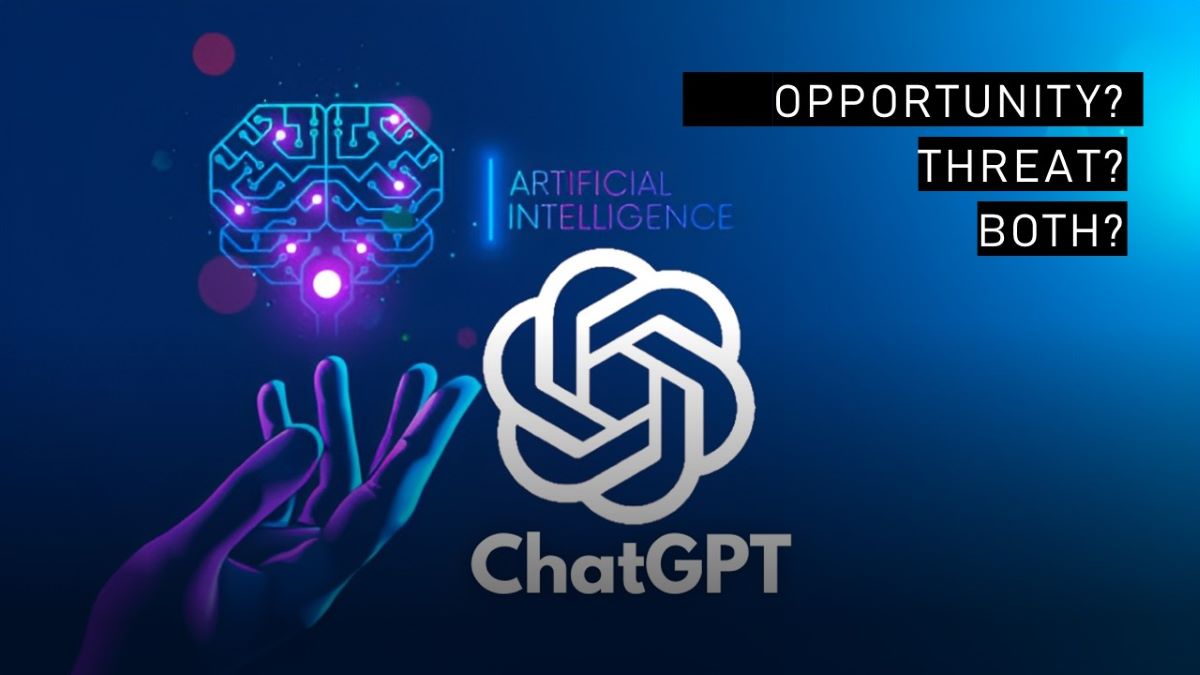Artificial Intelligence (AI) has been making significant advancements over the years, and ChatGPT is one of the most notable AI tools currently available. ChatGPT is a large language model developed by OpenAI, based on the GPT-3.5 architecture, that can perform a range of natural language processing tasks, including language translation, sentiment analysis, and text summarization. However, some people argue that ChatGPT, and other AI tools like it, should be considered a threat to society. While others see it as an opportunity to advance our knowledge and improve our daily lives. In this article, we will discuss both sides of the argument and determine whether ChatGPT should be viewed as an opportunity or a threat.
Opportunity:
One of the most significant advantages of AI tools like ChatGPT is their ability to automate a wide range of tasks, which can free up time for people to focus on more complex and creative work. For example, ChatGPT can help businesses automate customer service responses, which allows employees to focus on more complicated queries. It can also assist with medical diagnoses, freeing up doctors to spend more time with patients.
AI tools such as ChatGPT can also help to improve accuracy in decision-making processes. They can analyze vast amounts of data and identify patterns that may be difficult for humans to detect. This can be particularly beneficial in fields such as finance and marketing, where decisions need to be made quickly and accurately.
Furthermore, ChatGPT can help to make education more accessible by offering personalized learning experiences that adapt to the needs of individual students. It can also provide language translation services, making it easier for people from different parts of the world to communicate with each other.
Threat:
One of the most significant concerns regarding AI tools such as ChatGPT is their potential impact on employment. As more tasks become automated, it is feared that many jobs will become obsolete. This could lead to significant social and economic disruption, particularly in industries such as manufacturing and transportation.
Another concern is the potential misuse of AI tools. For example, ChatGPT could be used to create fake news, propaganda, or other types of misinformation. It could also be used to create deepfakes, which are videos or images that have been manipulated to show someone saying or doing something they did not do.
Finally, there are concerns around privacy and security. As AI tools like ChatGPT collect and analyze vast amounts of data, it is essential to ensure that this information is protected from cyber threats and that user privacy is maintained.
Conclusion: In conclusion, ChatGPT and other AI tools like it should be viewed as both an opportunity and a threat. While they have the potential to revolutionize many industries and improve our daily lives, they also come with significant risks. It is essential to consider these risks carefully and work to mitigate them as much as possible. Ultimately, the development and deployment of AI tools should be guided by a set of ethical principles to ensure that they are used for the greater good and do not cause harm to society.

